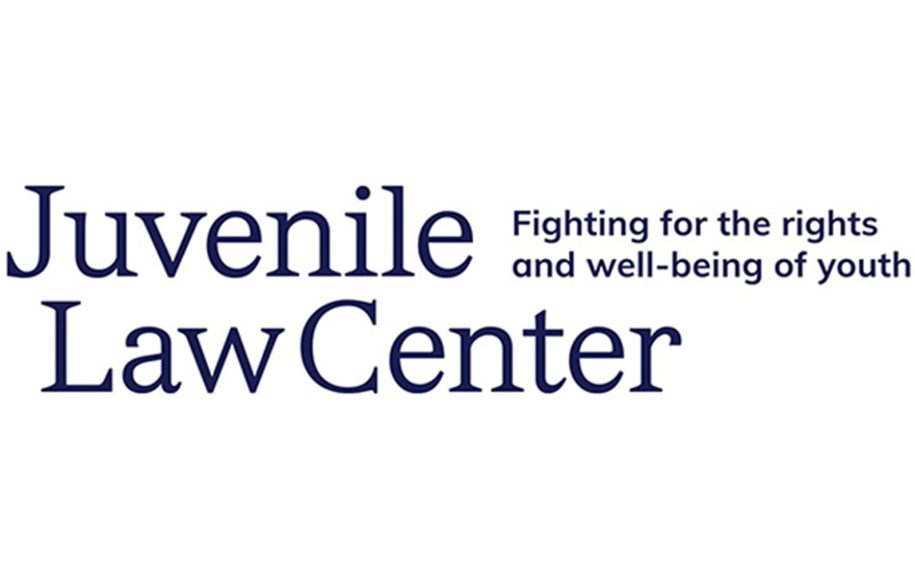WHAT’S IN THIS BOOK?
This report shines a light on the harsh, harmful practices Juvenile Law Center youth advocates have experienced in placement facilities in Pennsylvania as well as their recommendations for change.
The first edition of this publication, Broken Bridges: How Juvenile Placements Cut Off Youth from Communities and Successful Futures, issued in 2018, highlighted their experiences with separation from family, strip searches, physical restraints, physical abuse, solitary confinement, and education deprivation. We reprint it as the first section here because of the power of youth stories, the persistence of the challenges we face, and the value of their recommendations.
The second section, Broken Promises: Futures Denied provides a 2024 update, reflecting again on challenges with education and physical abuse, and adding new insights on racial discrimination, LGBTQIA+ bias, gender bias, disability justice, and mental health. For the young people who participated in both projects, their bios and photos also shine a light on their growth and evolution as leaders.
Visit our website to learn more about youth advocates’ projects and policy advocacy work on this important issue: www.jlc.org/youth-advocacy.
EXECUTIVE SUMMARY
In 2008, Juvenile Law Center launched two youth advocacy programs (Advocates Transforming Youth Systems and Advocates for Youth Justice) for young people with experience in the child welfare or justice system to lead advocacy efforts in their communities. Young people in the Youth Advocacy Program learn and engage in policy advocacy, media outreach, and public education. Youth build leadership and storytelling skills, gain political knowledge, and create a community with their peers. They speak to the public and policy makers, write op eds, appear in the media to elevate their work, and inform Juvenile Law Center’s strategies and approaches. The juvenile legal system and child welfare system disproportionately impact Latine, Indigenous and LGBTQIA+ young people and their families, and impact Black families at the highest rate. Youth with child welfare or juvenile legal system involvement are largely excluded from reform work; their insights are crucial to creating informed and effective policies.
In stop 2018, members of the Youth Advocacy Program developed the publication Broken Bridges, reprinted as the first section here. We talked about our harsh experiences inside of placement facilities and came up with recommendations that we hoped could help others from experiencing what we went through. is intimidating for youth to share stories of trauma and harm; being able to speak our truth as a group in this publication helped us to make an impact locally and nationally while supporting each other. Broken Bridges has made waves and ignited change since its release in 2018. Here’s some of what that has looked like
Philadelphia City Council allocated money to create the first ever Office of the Youth Ombudsperson in Philadelphia to serve as an avenue for youth to lodge reports of abuse and mistreatment.
The report was downloaded over 2,000 times from our website by reporters and policy makers across the nation. Additionally, we distributed 1,000 print copies. Journalists cited Broken Bridges in outlets nationally and locally to educate the public about experiences young people have in placements.
Following the publication of the report as well as multiple scandals involving abuse at facilities in the state, a bi-partisan group of legislators, community leaders, juvenile court judges, and other juvenile legal stakeholders formed a task force to review and assess the problems affecting Pennsylvania’s juvenile legal system. They released a report in 2021 containing 35 recommendations for reform.1 Some of these recommendations have been included in pending legislation.
Broken Bridges helped to advance legislation at the state level for an Office of the Child Advocate to ensure children across the Commonwealth have equal access to redress when they are harmed in placement.
Broken Bridges helped to inform the creation of Screaming into the Void, a publication written by a Juvenile Law Center Fellow on grievance procedures with recommendations for improvements.
Despite years of advocacy, stories of harm in these facilities continue, and stakeholders continue to build new facilities and allocate more money to support congregate care for children. During this time, multiple facilities have been found to be unsafe for children and shut down, but some then reopen under different ownership and contracts. It’s a mockery to youth when these placement facilities reopen after all the harm they’ve done. Facilities expose youth to harm they wouldn’t experience in their communities. They don’t take youth mental health seriously. Youth experience the trauma of being separated from their families to live in congregate care facilities and then experience more harm once in placement. Youth face mistreatment for their skin color, sexuality, religion, and disabilities while in settings that our government agencies deemed safe and fit. These facilities are doing more harm than good.

